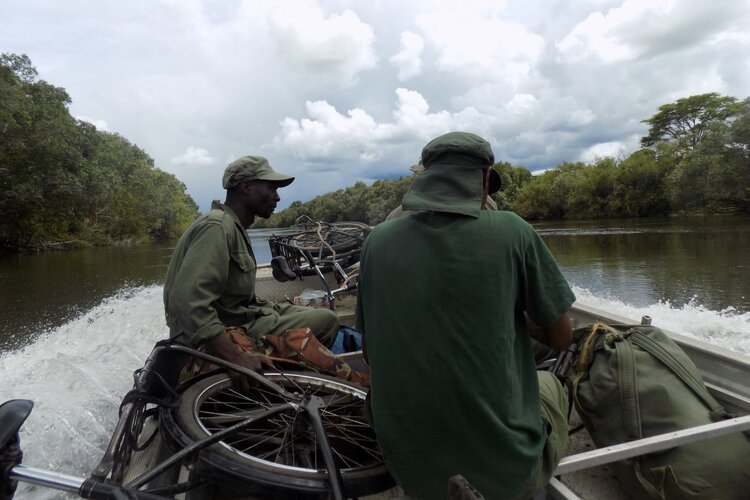Ecosystem Restoration
Restoring the West Lunga ecosystem to its full ecological potentia
The West Lunga Conservation Project (WLCP)
The West Lunga Conservation Project (WLCP) was conceived in 2014 through a collaborative partnership between the Department of National Parks and Wildlife (DNPW) and the Trident Foundation with funding from Kalumbila Minerals Ltd., a subsidiary of First Quantum Minerals. WLCP was incorporated in 2019 and now works with DNPW and local communities to enhance the management of the area with funding and support from the First Quantum Minerals (FQM) subsidiaries, the Worldwide Fund for Nature (WWF), and the Nature Conservancy (TNC). The plan for the West Lunga ecosystem is to maintain the ecological services and restore the wildlife populations in order to promote a wildlife industry in the surrounding communities.

Location
Throughout our decades-long history in Zambia, we have invested over $70 million in education, from formative early years education through to our Kwambula Training at the Solwezi Trades Training Institute.
We have built classroom blocks and teacher accommodation, delivered desks, and donated digital learning platforms and more than 90,000 textbooks to more than 50 schools near our operations.
We sponsor a number of different types of scholarships to meet the needs of children and families. We make cash payments to schools for families of primary and secondary scholars to encourage them to be kept in school.
Our scholarship program doesn’t end at school. As Zambia’s largest private sector employer, we know the importance of excellent vocational training. We sponsor around 150 students and interns in various trades and vocational training programs. The 2017 and 2018 intakes have been 100 per cent female, in order to address the gender imbalance in the mining industry.
Objective
The primary objective of the project is to restore the WLAMU to a complete and functioning ecosystem representing historical mammal populations that can stimulate a “Conservation Based Economy.” This entails the formation of a variety of Community Business Units that have full usage and managerial rights to their GMAs to facilitate the generation of revenue through Community Game Ranching, Tourism, Sustainable Honey Production, Non Timber Forest Product Commercialisation and Carbon Offset Trading.
